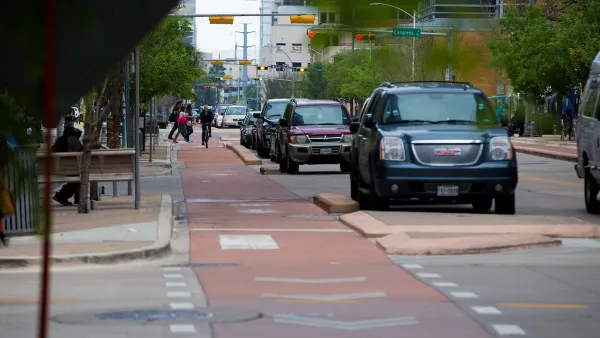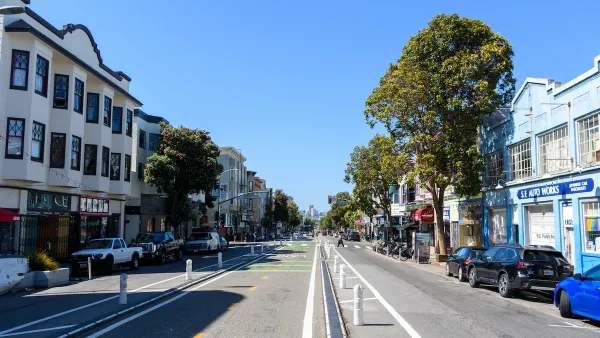A new study from the University of Leeds claims that drivers are more careful and leave more room for bikers when there is no bike lane.
"Ciaran Meyers, a postgraduate student at Leeds University's Institute for Transport Studies, hopped on his Marin Mill Valley hybridwith a camera mounted on it to measure passing distances.
On a 50mph section of the A6, north of Preston in Lancashire, the readings found that motorists, on average, gave Ciaran an extra 18.1cm of space where there was no marked cycle lanecompared to when there was. On a 40mph section of the same road the difference was 6.8cm, whereas on the 30mph section it was down to 3.7cm, seen as not statistically significant."
FULL STORY: Cars And Cycle Lanes - Too Close For Comfort

Analysis: Cybertruck Fatality Rate Far Exceeds That of Ford Pinto
The Tesla Cybertruck was recalled seven times last year.

National Parks Layoffs Will Cause Communities to Lose Billions
Thousands of essential park workers were laid off this week, just before the busy spring break season.

Retro-silient?: America’s First “Eco-burb,” The Woodlands Turns 50
A master-planned community north of Houston offers lessons on green infrastructure and resilient design, but falls short of its founder’s lofty affordability and walkability goals.

Test News Post 1
This is a summary

Analysis: Cybertruck Fatality Rate Far Exceeds That of Ford Pinto
The Tesla Cybertruck was recalled seven times last year.

Test News Headline 46
Test for the image on the front page.
Urban Design for Planners 1: Software Tools
This six-course series explores essential urban design concepts using open source software and equips planners with the tools they need to participate fully in the urban design process.
Planning for Universal Design
Learn the tools for implementing Universal Design in planning regulations.
EMC Planning Group, Inc.
Planetizen
Planetizen
Mpact (formerly Rail~Volution)
Great Falls Development Authority, Inc.
HUDs Office of Policy Development and Research
NYU Wagner Graduate School of Public Service




























